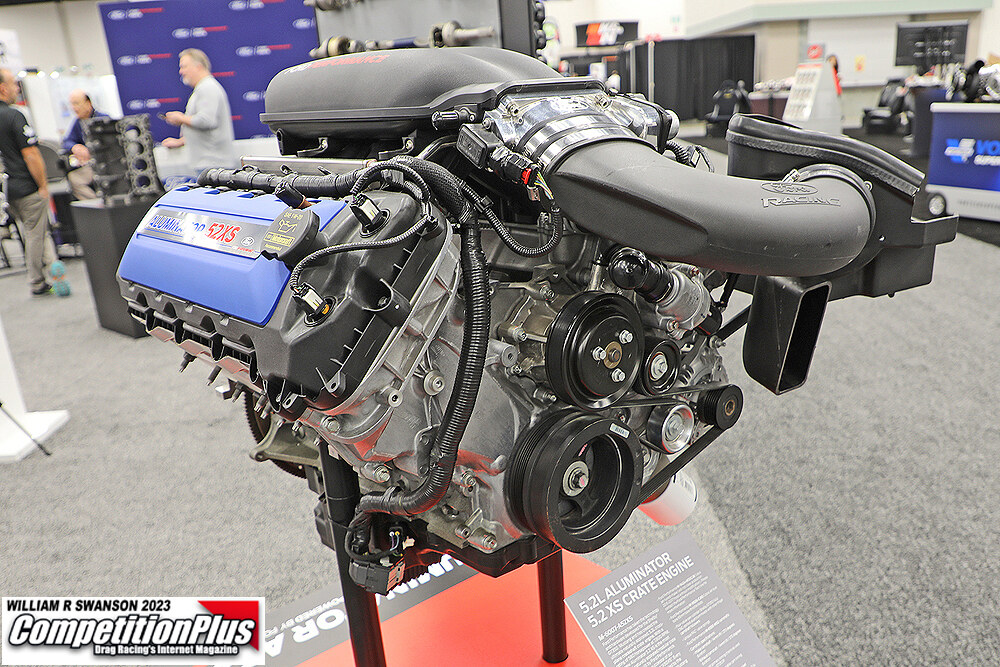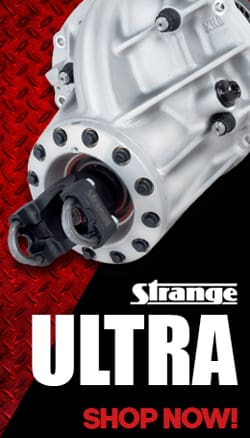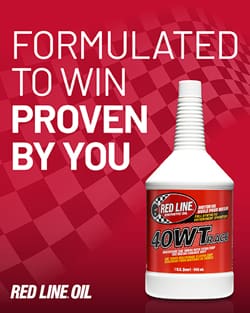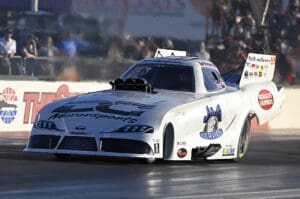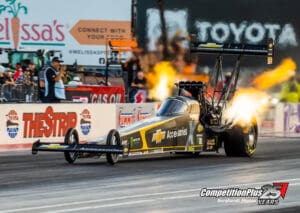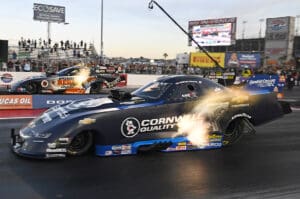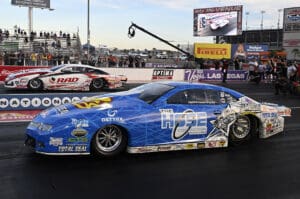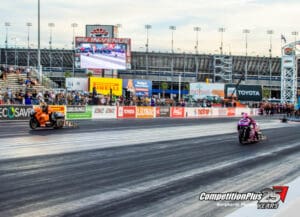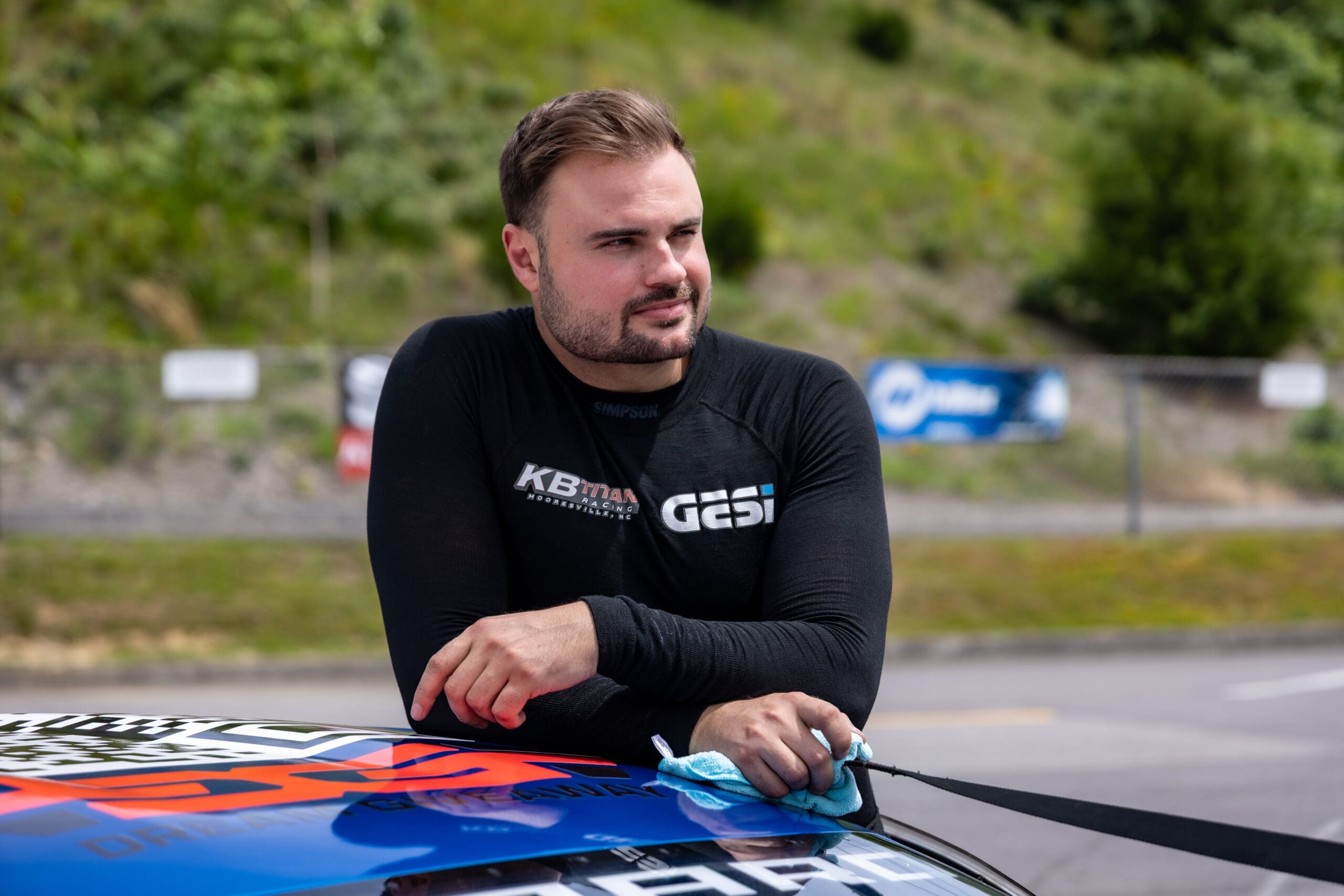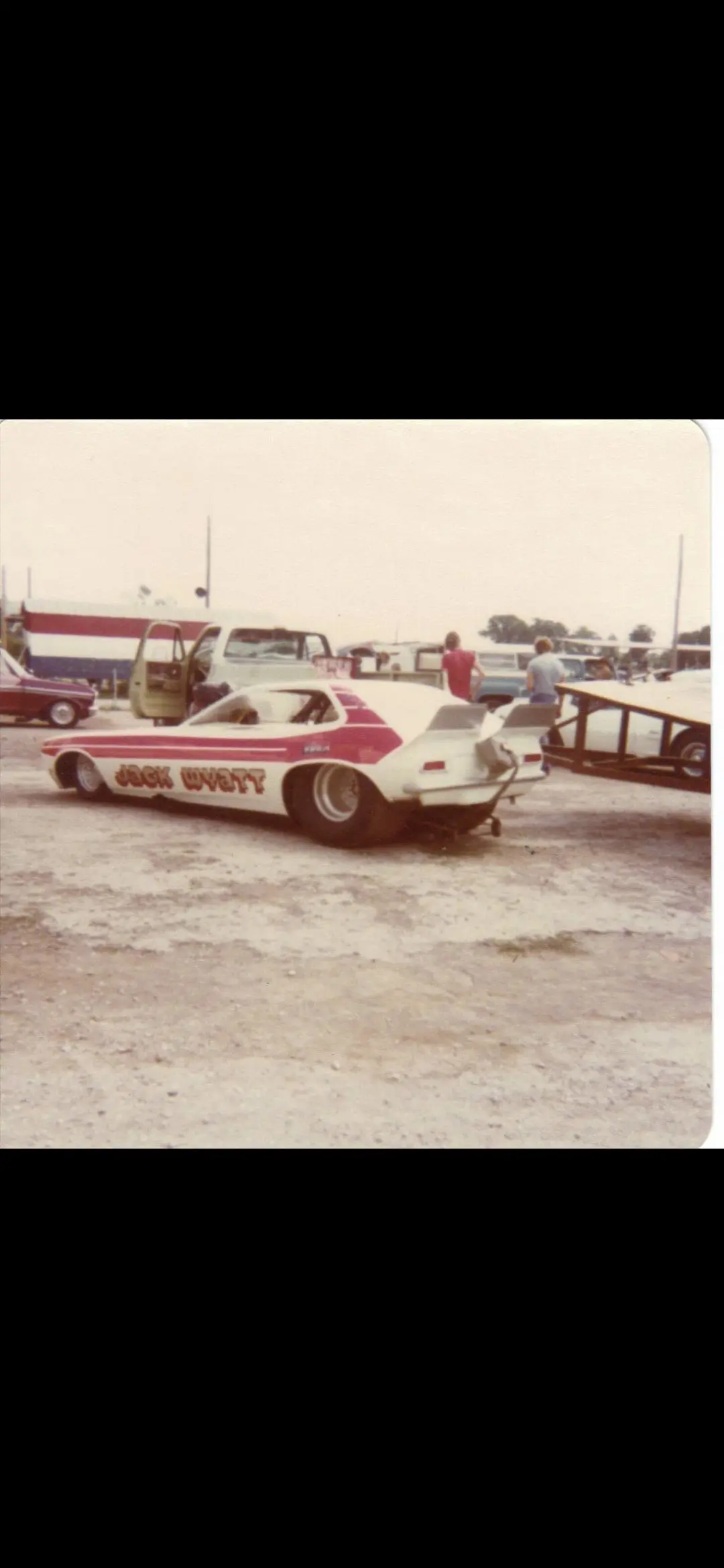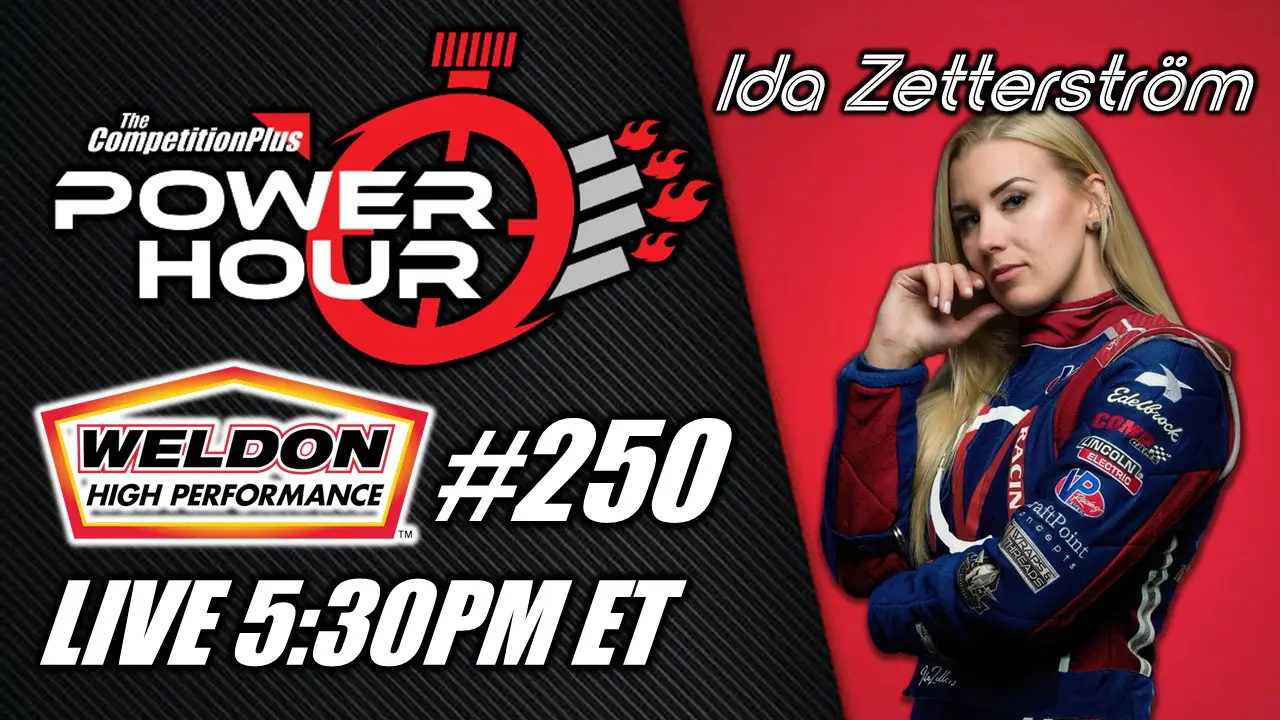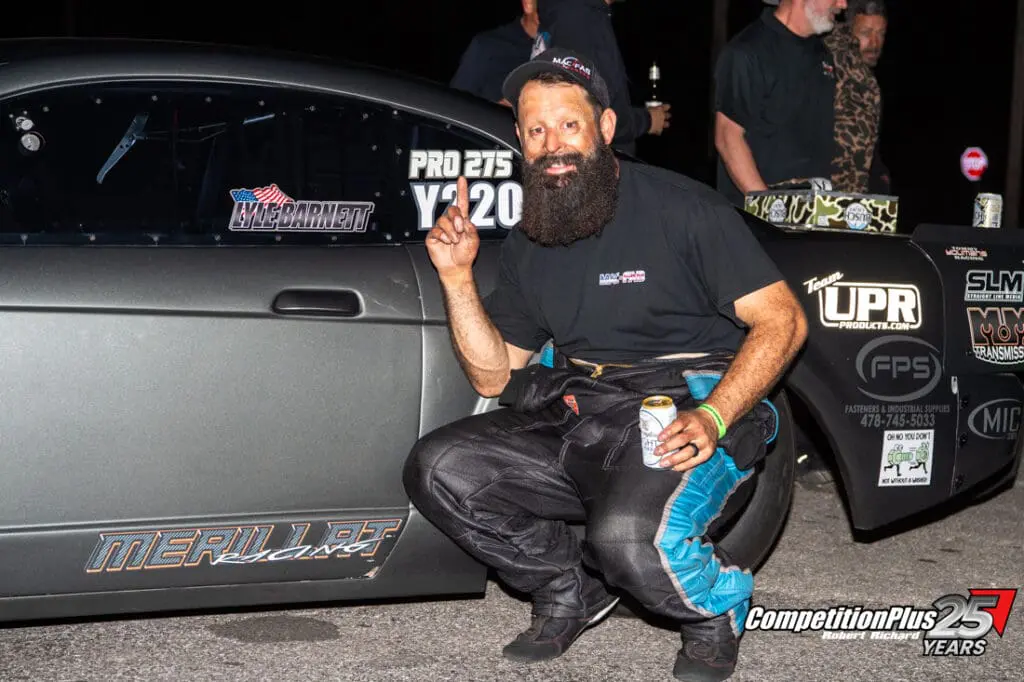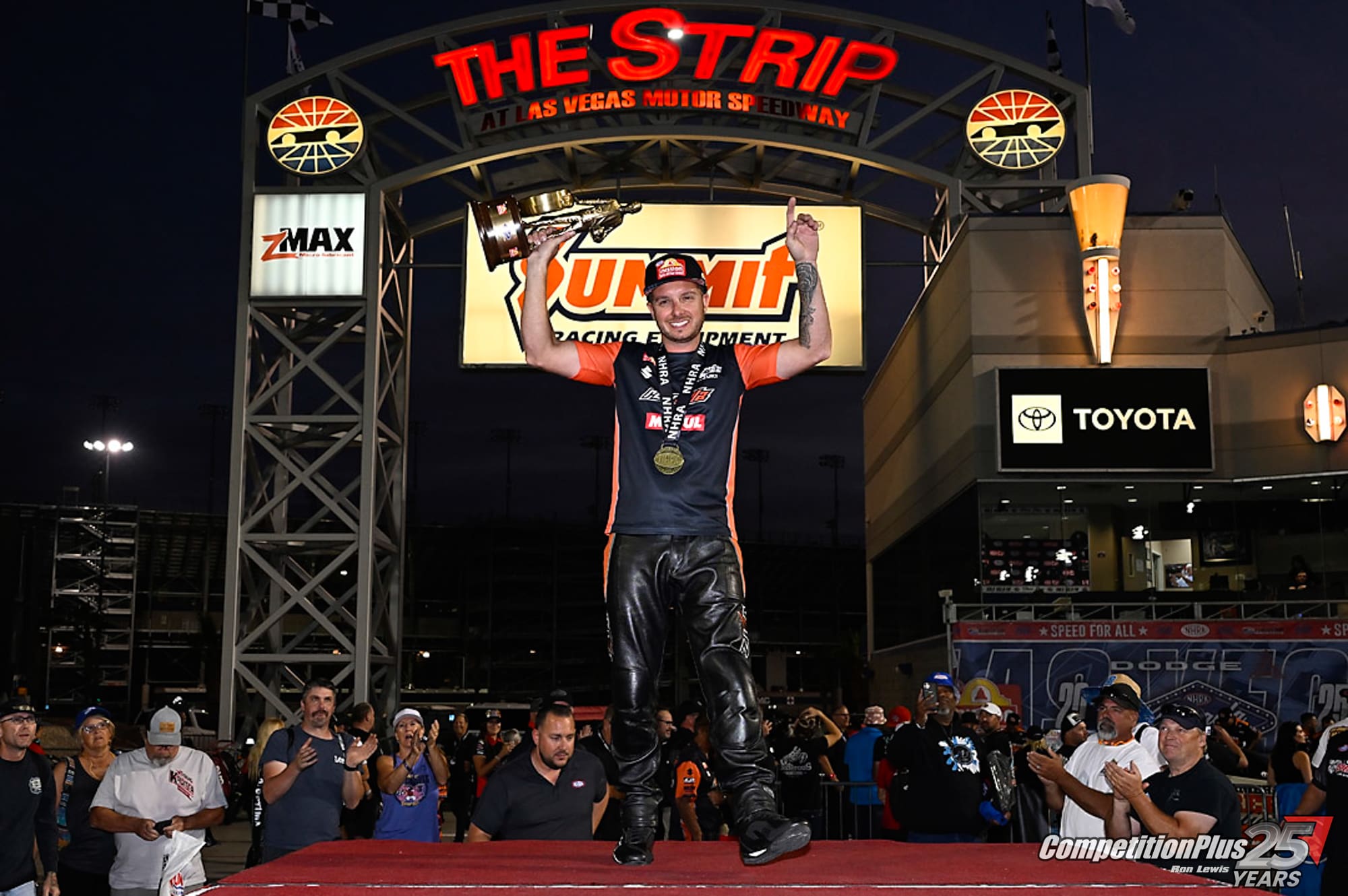
Call this latest one the Jonnie Lindberg Rule.
In response to the effects of coronavirus, the NHRA announced Friday it temporarily has modified its points-based replacement driver policy.
Effective July 11, 2020 (and, in legalese the NHRA added, “and notwithstanding any rule to the contrary”), if the original driver is replaced due to COVID-19, the new driver will continue to earn points for the original driver. This change applies only if the original driver has been affected directly by COVID-19 in the judgment of NHRA’s medical director.” That would apply if, for instance, a driver tested positive for coronavirus or was required to quarantine because of contact.
If the original driver must withdraw in the middle of the event, the original driver’s times will still be valid if he/she is replaced because of coronavirus-related reasons. The replacement driver will not be required to re-qualify.
These changes apply only to drivers in the Top Fuel, Funny Car, Pro Stock, Pro Stock Motorcycle, Pro Mod, and Top Fuel Harley classes.
So Jonnie Lindberg will be earning his own points as he subs this weekend for Bob Tasca III, who is mending from coronavirus at his Rhode Island home.
Ned Walliser, NHRA’s vice-president of competition, said, “The leadership team met, and we all agreed that trying not to allow the spread of COVID-19, or the coronavirus, was the utmost importance as we came back. And protecting all the drivers, the crew members, the spectators, all the people that are involved here at the event, that was equally important. So if someone was feeling ill, not feeling 100 percent, we wanted to make sure they did not run their car. To disrupt that decision, we want all great decisions coming out of this. So if you’re not feeling well, stay at home. A replacement driver can be put in for COVID-19.
“This is a new world we’re living in, and we have the responsibility and the accountability of living up to all the safety standards that we normally live up to. Now, the additional safety standards of COVID-19, and we want to be with the responsible party and show the world we can put motorsport events on with spectators in a responsible way,” he said.
At this point, the new rule is in effect for 2020 only, but Walliser said, “We’ll take a look at it obviously. If you would have asked me that question back in 2019, we probably wouldn’t be having this conversation. So as the sport evolves, as the virus evolves, as the world evolves, we will always look at situations and make the best choice possible.”
He said the NHRA has set no limit on how many races a team may use a substitute driver: “No, the determination of a driver returning will be per doctor’s orders and per the test results that we receive before coming back.”
Is the NHRA thinking it might expand the rule to cover situations other than coronavirus, perhaps anything from a broken bone to cancer?
Walliser said, “At this point, no. We’ve only opened it to COVID-19, but we will consider all those things as we move forward.”
The NHRA also has changed its oildown policy.
Effective immediately, it is suspending monetary penalties for excessive oildowns throughout the 2020 season. If a drive is committing an unacceptable number of oildowns, officials are reserving the right to reinstate a penalty – again in legalese – “at any time at NHRA’s sole and absolute discretion.”
However, the NHRA will continue to deduct points from racers in the four major pro categories (Top Fuel, Funny Car, Pro Stock, and Pro Stock Motorcycle) for oildown infractions. Violators will lose ground in the standings in in five-point increments per violation. That goes for oildowns that happen in qualifying, as well as during eliminations. The maximum maximum per-incident penalty will be 15 points for Top Fuel and Funny Car and 10 for Pro Stock and Pro Stock Motorcycle.
The points-based oildown penalties will be in place through the end of the season. In past seasons, oildown points penalties were not assessed during the final six-race NHRA Countdown to the Championship.















